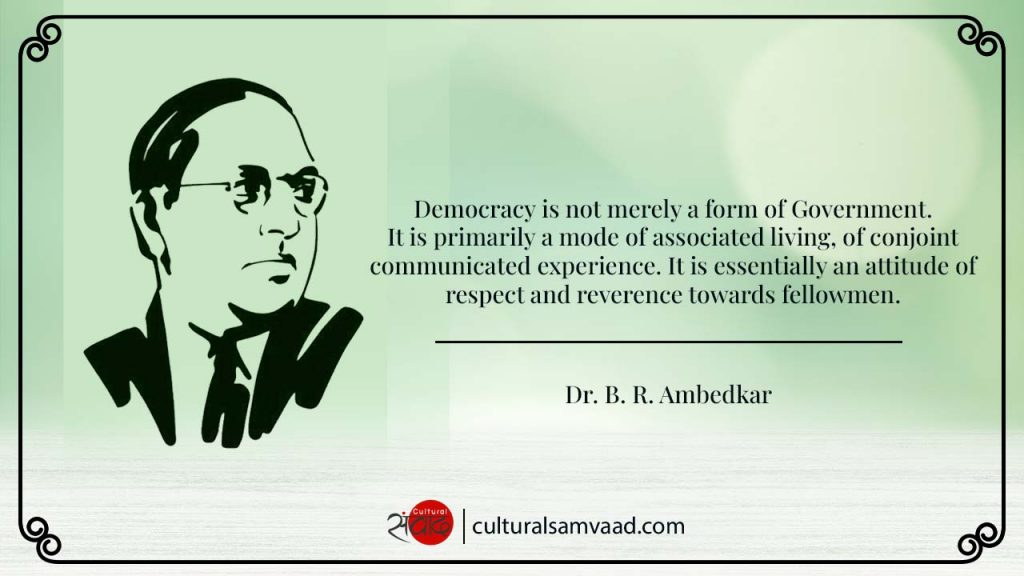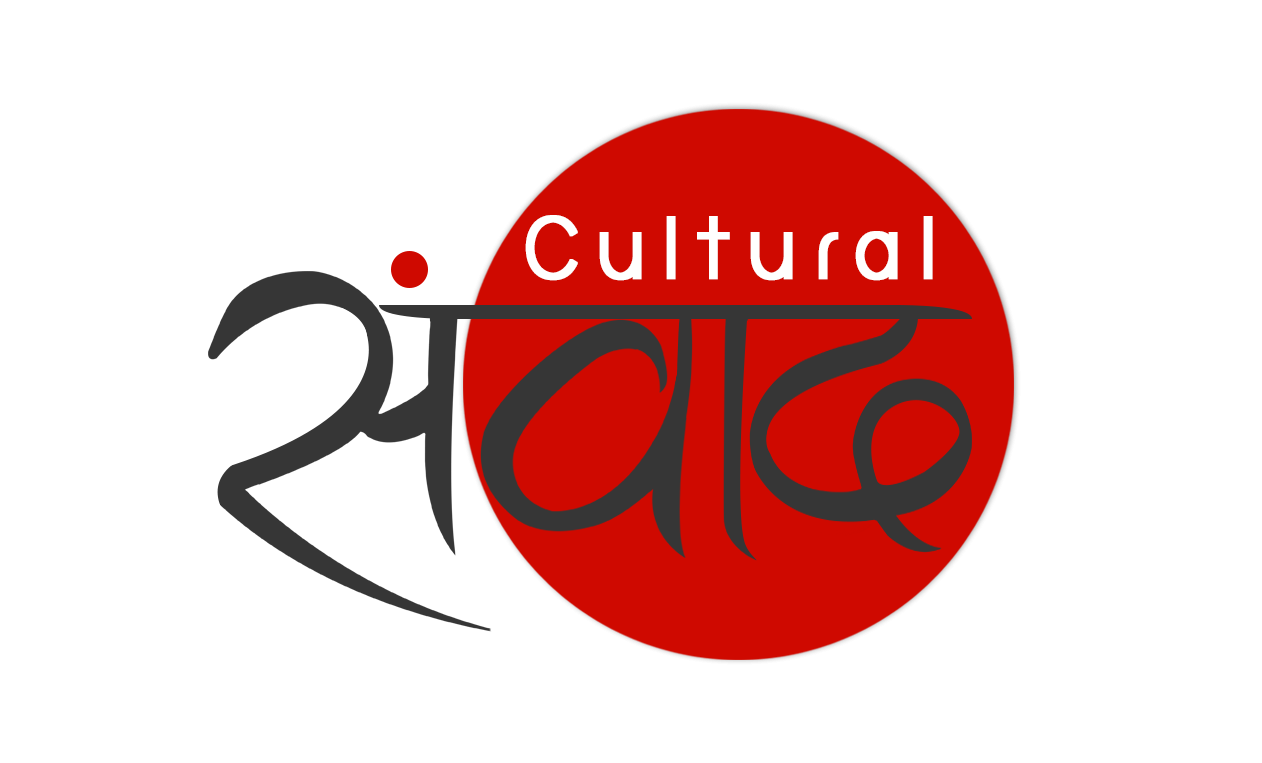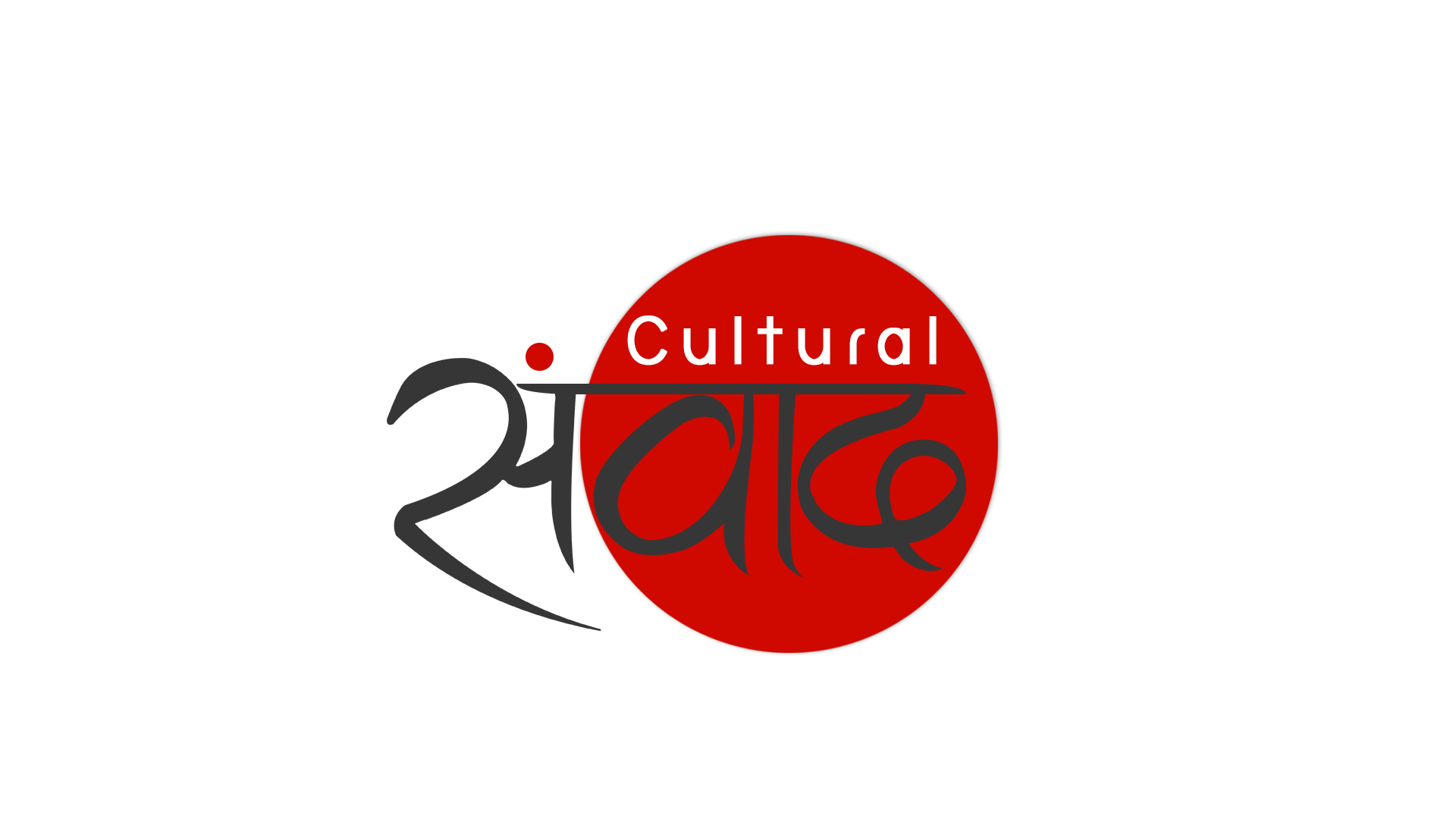Join Cultural Samvaad’s WhatsApp Community
Editor’s Note:
‘Annihilation of Caste’ is considered as one of the monumental works of Dr. B. R. Ambedkar. The work was composed in 1936 and was intended to be the Presidential Address which would be delivered in meeting of a group of liberal Hindu caste-reformers in Lahore – the Jat-Pat-Todak Mandal. Ambedkar says that he was given to understand that the organisation was “an organisation of Caste Hindu Social Reformers, with the one and only aim, namely, to eradicate the Caste System from amongst the Hindus.” The speech remained undelivered as the Mandal cancelled the proposed conference after reviewing the address. Dr. Ambedkar’s correspondence with the Mandal can be accessed in the ‘Annihilation of Caste’, the print version of the speech which he self-published.
We are reproducing an extract from the work which we believe is essential reading for those who want to understand Liberty, Equality and Fraternity from Dr. Ambedkar’s standpoint and play a part in building a society based on these ideals. The comments on ‘Equality’ are particularly pertinent in light of the growing inequality in the world. The editor has taken the liberty of re-arranging the paragraphs and adding emphasis.
Extract from ‘Annihilation of Caste’
What is your ideal society if you do not want caste is a question that is bound to be asked of you?
If you ask me, my ideal would be a society based on Liberty, Equality and Fraternity.
And why not?
What objection can there be to Fraternity?
I cannot imagine any. An ideal society should be mobile, should be full of channels for conveying a change taking place in one part to other parts. In an ideal society there should be many interests consciously communicated and shared. There should be varied and free points of contact with other modes of association. In other words, there must be social endosmosis. This is fraternity, which is only another name for democracy. Democracy is not merely a form of Government. It is primarily a mode of associated living, of conjoint communicated experience. It is essentially an attitude of respect and reverence towards fellowmen.

Any objection to Liberty?
Few object to liberty in the sense of a right to free movement, in the sense of a right to life and limb. There is no objection to liberty in the sense of a right to property, tools and materials as being necessary for earning a living to keep the body in due state of health. Why not allow liberty to benefit by an effective and competent use of a person’s powers? The supporters of caste who would allow liberty in the sense of a right to life, limb and property, would not readily consent to liberty in this sense, inasmuch as it involves liberty to choose one’s profession. But to object to this kind of liberty is to perpetuate slavery. For slavery does not merely mean a legalised form of subjection. It means a state of society in which some men are forced to accept from other the purposes which control their conduct. This condition obtains even where mere is no slavery in the legal sense. It is found where, as in the Caste System, some persons are compelled to carry on certain prescribed callings which are not of their choice.
Any objection to Equality?
This has obviously been the most contentious part of the slogan of the French Revolution. The objections to equality may be sound and one may have to admit that all men are not equal. But what of that? Equality may be a fiction but nonetheless one must accept it as the governing principle. A man’s power is dependent upon (1) physical heredity, (2) social inheritance or endowment in the form of parental care, education, accumulation of scientific knowledge, everything which enables him to be more efficient than the savage, and finally, (3) on his own efforts. In all these three respects men are undoubtedly unequal. But the question is, shall we treat them as unequal because they are unequal? This is a question which the opponents of equality must answer.
From the standpoint of the individualist, it may be just to treat men unequally so far as their efforts are unequal. It may be desirable to give as much incentive as possible to the full development of every one’s powers. But what would happen if men were treated unequally as they are, in the first two respects? It is obvious that those individuals also in whose favour there is birth, education, family name, business connections and inherited wealth would be selected in the race. But selection under such circumstances would not be a selection of the able. It would be the selection of the privileged. The reason therefore, which forces that in the third respect we should treat men unequally demands that in the first two respects we should treat men as equally as possible. On the other hand, it can be urged that if it is good for the social body to get the most out of its members, it can get most out of them only by making them equal as far as possible at the very start of the race. That is one reason why we cannot escape equality. But there is another reason why we must accept equality. A Statesman is concerned with vast numbers of people. He has neither the time nor the knowledge to draw fine distinctions and to treat each equitably i.e. according to need or according to capacity. However desirable or reasonable an equitable treatment of men may be, humanity is not capable of assortment and classification. The statesman, therefore, must follow some rough and ready rule and that rough and ready rule is to treat all men alike not because they are alike but because classification and assortment is impossible. The doctrine of equality is glaringly fallacious but taking all in all it is the only way a statesman can proceed in politics – which is a severely practical affair and which demands a severely practical test.
Reference:
Ambedkar, B. R., S Anand, and Arundhati Roy. Annihilation of caste : the annotated critical edition. New Delhi: Navayana, 2014. Print.


Add comment